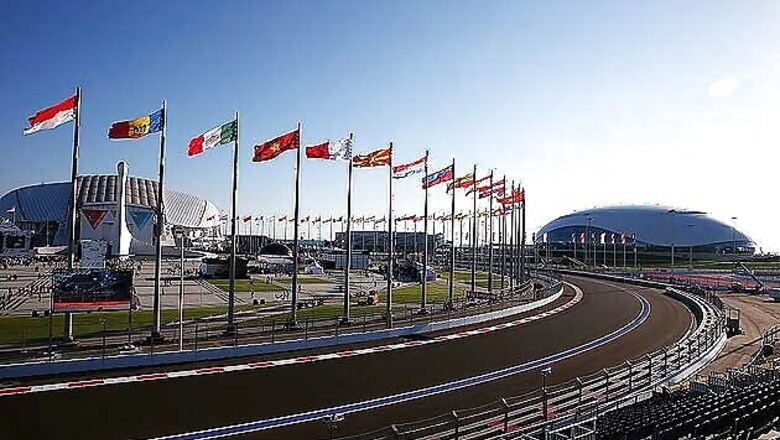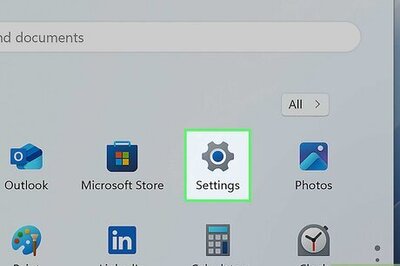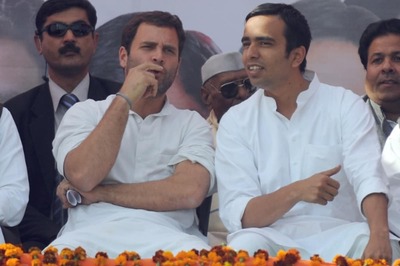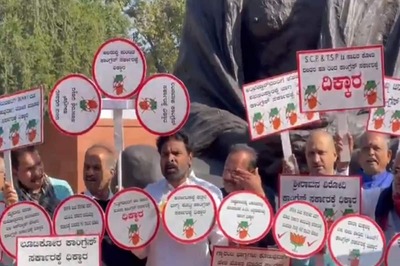
views
Austin: Formula One's smaller teams look set to be offered a 'base payment' to ensure their survival after a US Grand Prix weekend overshadowed by talk of crisis and the threat of a boycott.
Lotus principal Gerard Lopez indicated after Sunday's race at the Circuit of the Americas that a solution was within reach, possibly by the next race in Sao Paulo at the weekend.
"I really think there is a way to solve this in the next coming days, probably even to get to a proposal before Brazil, in which case I don't see the point in doing anything drastic which would damage the sport," he told Reuters.
Asked for more details, with teams like his seeking a fairer division of the sport's revenues to ensure they had a basic budget to compete, Lopez indicated the commercial rights holder was willing to step in.
"It can take various forms," he said.
"I know CVC and Bernie (Ecclestone) have been looking at this but it's going to be a base payment that is given to the smaller teams, let's call them the racers, which is essentially going to make it possible for a normal budget to be pretty much close every year."
Privately-owned Sauber, Force India and Lotus have called for a more equal distribution of the revenues in a sport that has more than $1.5 billion in annual turnover and hands in excess of $800 million back to the teams.
Private equity fund CVC Capital Partners, who have contemplated a flotation of Formula One, are the largest shareholder with a stake of around 35 percent.
There is a huge range of payments to teams, with Ferrari's slice of the cake as much as an estimated $160 million while tail-enders Marussia were handed only $10 million.
Marussia and Caterham both went into administration last month, leaving only nine teams to compete in Austin and question marks hanging over some of them.
Lopez said ensuring the 'racer teams' had a basic budget to survive in a sport where an engine deal costs at least $20 million, was "really not a complicated thing to do.
"It just requires a bit of good will," he added. "There are some more financial intricacies to be built in but I think there is a way to build a proposal in the next couple of days."
Paddock sources said CVC were believed to have stepped in to prevent further damage to the sport that might deter potential investors in any future initial public offering.
SAME POT
Lopez said the big teams still had to play their part but was confident they would.
"If we're keeping the same pot (of money available), even though I've heard that CVC is willing to help out but not alone, if it requires everybody to participate then it will require everybody to agree on how to participate," he said.
"Even the people who have a strong opinion on the subject are not stupid and they know a bit of an effort is going to help everybody including themselves."
Mercedes motorsport head Toto Wolff and Red Bull principal Christian Horner said it was up to the commercial rights holder to lead the way.
"It is a matter for the teams to discuss it with Bernie, it is his call and if the so-called bigger teams can do something then I think we should...discuss it," said Wolff.
Horner said any extra money must come from the commercial rights holder's profits but suggested there was a strong business reason for doing so.
"There are still very healthy margins in F1. The flotation, if it was going to happen, would be a significant amount of money but it would be devalued if there were fewer players involved," he said.
"If the commercial rights holders want to put in place more money to the smaller teams then that is their choice and their responsibility. Teams are here to compete, not sponsor each other."




















Comments
0 comment